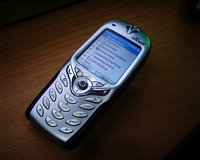 In Commonwealth v. Salmons, the Appeals Court reversed the allowance of the Commonwealth’s motion requesting that before returning the defendant’s unlawfully seized cell phones to him, the Commonwealth be permitted to “wipe” all data from the phones.
In Commonwealth v. Salmons, the Appeals Court reversed the allowance of the Commonwealth’s motion requesting that before returning the defendant’s unlawfully seized cell phones to him, the Commonwealth be permitted to “wipe” all data from the phones.
The background was as follows. In response to a report of a domestic altercation at the home of the defendant’s girl friend, the police arrested the defendant for assault and battery and related charges. The police “found no drugs [at the scene,] but seized [drug] paraphernalia and the defendant’s three cell phones.” “Six months after the cell phones were seized, police applied for and obtained a warrant to search them for evidence of drug offenses. Shortly thereafter, the [SJC] decided in Commonwealth v. White, 475 Mass. 583, 590- 591 (2016), that probable cause to seize or search a cell phone requires, among other things, ‘information establishing the existence of particularized evidence likely to be found there.’ The [SJC] further ruled that, when a cell phone or other item is seized without a warrant and police later obtain a warrant to search it, the search is unreasonable unless the Commonwealth shows, among other things, ‘that the delay between the seizure and the filing of the application for a search warrant was reasonable.’ Id. at 593. Based on White, the defendant here [filed a motion] to suppress the evidence found in the search of his cell phones.” A judge allowed the motion and the defendant subsequently pleaded guilty to various offenses. He was sentenced to concurrent ten-year terms of incarceration. “At the time of sentencing, the defendant moved for the return of his cell phones, asserting that they were no longer needed as evidence…. A judge allowed the motion and ordered that the cell phones, [which were] being held by the … police, be returned to the defendant or his authorized representative. More than eight months later, the Commonwealth filed a ‘motion for clarification’ of the order that the cell phones be returned. The motion stated that, when the search warrants for the cell phones had been executed, two of the cell phones were found to contain ‘numerous and sexually explicit photographs and videos of the defendant and [the victim].’ The Commonwealth sought approval, before returning those cell phones, to wipe their memories ‘by engaging the factory reset option’ to ensure that ‘no sexually explicit photographs or videos of the victim [could] be given to the defendant’s representatives for possible retaliation for her participation in the prosecution.’” A judge (other than the one who had ordered that the cell phones be returned to the defendant) “allowed the Commonwealth’s request to first ‘wipe’ all data from two of the … phones in order to erase” the video recordings and photographs that the Commonwealth had cited. “The judge expressed concern that, if the cell phones were returned without being wiped, the materials at issue would be available to the defendant’s brother or others, who might disseminate them, intentionally or otherwise, and thereby harm the victim.” The judge stated, “‘I haven’t seen [that the defendant has] a compelling need [for] the information” on the phones, “particularly given the fact that he won’t even have access to [them] for some period of time.’…. Allowing the cell phones to be wiped would ‘avoid[] a risk [potential harm to the victim] which is far greater than the perceived needs of the defendant.’…. The defendant appealed and obtained a stay of any data erasure pending appeal.”
In its decision, the Appeals Court “conclude[d] that the judge erred in these circumstances in ordering the cell phones wiped before their return.” The Court stated, “We … begin with a strong presumption that the defendant is entitled to the return of his property — without regard to whether he has shown any need for it — and then ask whether the Commonwealth has shown a proper legal basis for refusing to return it.” “The Commonwealth made no claim that any data on the cell phones was still needed as evidence, was contraband, was the fruit of any crime, or was the property of the victim or anyone other than the defendant.” The Court disapproved of “[t]he judge’s statement that wiping the cell phones would ‘avoid[] a risk which is far greater than the perceived needs of the defendant[.]’” In the Court’s view, that assessment “was not a finding of fact that such harm was in any sense likely. Rather, it was an interest-balancing conclusion — one that erroneously put the burden on the defendant to show a need to possess what was already his.” “‘[T]he concept of private property represents a moral and political commitment that a pervasive disposition to balance away would utterly destroy. The commitment is enshrined in our Constitutions.’ Goulding v. Cook, 422 Mass. 276, 278 (1996).”
It is of crucial importance that all of a defendant’s rights be protected, regardless of whether they concern issues that arise prior to, during, or after a criminal case. If you or a loved one had property seized in the course of a criminal investigation or case, you should be afforded the appropriate protections. Contact Attorney Daniel Cappetta for assistance – he zealously represents his clients, at all stages of their criminal case.
 Massachusetts Criminal Lawyer Blog
Massachusetts Criminal Lawyer Blog

